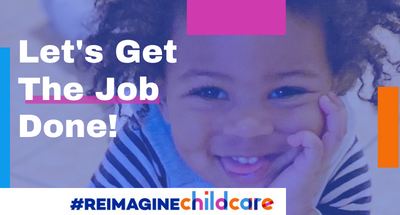Parent’s voices are key to promoting lasting, meaningful change for New Jersey's children. Learn how advocates Laura Palescandolo and Rose-Anne Uwague, members of ACNJ and Melinated Moms’ Parent Leadership Council, offered their testimonies at the March 21st New Jersey Assembly Budget Committee to help shape the 2023 state budget and bring attention to topics of critical importance to parents and children. By raising the voices, parents are able to craft a brighter future for our state’s kids, one voice at a time.
In sharing our experiences and insights with New Jersey legislators, we hoped to build bridges of awareness on behalf of underserved families to promote community wellbeing and make New Jersey a more equitable state in which to raise a family. We envision a culture that prioritizes children and serves as a foundation for families to thrive.
As working parents with children ranging from ages two to seven, we have and continue to experience many of the same challenges, including limited parental leave/family bonding time, breastfeeding struggles and the lack of affordable, quality child care.
We testified to legislators about our experiences as working parents, both having encountered crossroads where we have had to choose between our families and our careers – whether in returning to work shortly after giving birth – or in stepping away from a successful career to fully prioritize family needs. Managing personal and professional goals as working parents requires great support and sacrifice. The COVID-19 pandemic has intensified challenges for working mothers, with many struggling to do their jobs while managing household and child care responsibilities.
Like many working mothers, we have also juggled breastfeeding – already an enormous challenge and responsibility – with the need to return to work. The stresses and stigmas that come with pumping milk at work, often in less than ideal accommodations, to nourish our children, while trying to maintain a professional image, were and are overwhelming. Breastfeeding success is shaped by government policies and public health services, and should be a collective societal responsibility in which a mother feels 100% supported. This starts with allowing mothers more time at home with their newborns and normalizing breastfeeding in the workplace.
The lack of affordable, quality child care with hours that accommodate working parents is another challenge we shared with the budget committee. The rising cost of child care is significant and imposes a financial hardship upon families. Like other parents, we have had to modify work schedules to pick up our children from child care before incurring late fees, on top of the already thousands spent annually on tuition.
We also shared individual challenges that, while particular to our life circumstances, are familiar to many other parents. Laura testified about the inequitable cost of childbirth, with her son’s hospital birth costing $8,000 out of pocket (with health insurance), and her daughter’s homebirth with two attending nurse-midwives costing $5,500 (not covered by insurance). Rose-Anne testified about the challenge of accessing educational enrichment programs that focus on academic excellence and will prepare her children for the future – a struggle intensified by pandemic policies and curriculum.
We called upon the New Jersey Assembly Budget Committee to invest more in families with young children by:
- expanding paid parental leave in both time and compensation;
- broadening child care facility hours to accommodate the schedules of all working parents;
- making child care a public good; and
- putting a cap on out-of-pocket childbirth expenses and broadening insurance coverage to include midwives.
We asked that legislators reimagine child care, healthcare, education and other programs and services that directly affect the quality of life of parents and children.
But we need more parents to stand up for babies and share their story. Join Us!











